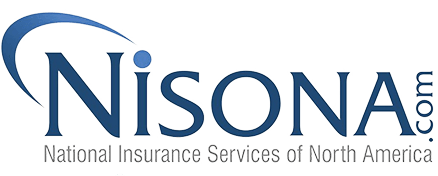Are you New to Medicare in Florida
New to Medicare in Florida? Medicare is the federal health insurance program in the United States that serves millions of people, including those who are 65 or older, certain younger individuals with disabilities, and people with End-Stage Renal Disease. Navigating Medicare can be confusing for newcomers, but understanding its components and enrollment process is crucial for making informed health care decisions. This simple guide will provide an overview of Medicare’s parts, eligibility, enrollment, associated costs, and tips for maximizing your benefits.ur Parts of Medicare
Medicare consists of four parts, each covering different aspects of health care:
-
Medicare Part A (Hospital Insurance)
- Coverage: Inpatient hospital stays, care in a skilled nursing facility, hospice care, and some home health care.
- Costs: Most people do not pay a premium for Part A if they or their spouse paid Medicare taxes while working. However, there are deductibles and coinsurance.
-
Medicare Part B (Medical Insurance)
- Coverage: Doctor visits, outpatient care, preventive services, and some home health care.
- Costs: Part B requires a monthly premium, which varies based on income. There are also deductibles and coinsurance.
-
Medicare Part C (Medicare Advantage)
- Coverage: Offered by private companies approved by Medicare, Part C includes all benefits and services covered under Part A and Part B, often including prescription drug coverage (Part D) and additional benefits such as vision, hearing, and dental.
- Costs: Varies by plan; typically involves premiums, deductibles, and coinsurance/copayments.
-
Medicare Part D (Prescription Drug Coverage)
- Coverage: Helps cover the cost of prescription drugs.
- Costs: Monthly premiums, annual deductibles, and copayments or coinsurance.
Medicare Eligibility – When you are eligible?
Medicare has several enrollment periods during which eligible individuals can sign up for coverage. These periods are crucial to ensure that you enroll at the right time to avoid late penalties and gaps in coverage. Here are the primary Medicare enrollment periods:
- You are eligible for Medicare if you are 65 or older, under 65 with certain disabilities, or have End-Stage Renal Disease.
- U.S. citizens and legal residents who have lived in the U.S. for at least five continuous years are eligible
Enrollment Periods – When to enroll!
Initial Enrollment Period (IEP)
- IEP, or Initial Election Period is a 7-month period when someone is first eligible to sign up for Medicare. It begins 3 months before your 65th birthday, includes the month you turn 65, and ends 3 months after your 65th birthday. Coverage starts the month after a person signs up for Medicare.
- IEP is when most people first sign up for Medicare. During this time, you can enroll in Medicare Part A and Part B.
- Example: If your 65th birthday is in June, your IEP starts on March 1 and ends on September 30.
General Enrollment Period (GEP)
- January 1 to March 31 each year.
- The GEP is designed for individuals who did not sign up for Medicare Part A and/or Part B during their Initial Enrollment Period and who are not eligible for a Special Enrollment Period. Your coverage starts the month after you sign up.
- Note: Enrolling during the GEP may result in late enrollment penalties if you didn’t sign up when first eligible.
Special Enrollment Period (SEP)
- Allows individuals to enroll in Medicare Part A and/or Part B outside of the IEP and GEP without penalty. Common reasons include losing employer-based coverage, moving out of a plan’s service area, or other qualifying life events.
- Example: If you are covered under an employer’s health plan and retire, you have an eight-month SEP to sign up for Part A and/or Part B, starting the month after your employment ends or your group health coverage ends, whichever happens first.
How to Apply for Medicare
- Online:
- You can apply online at the Social Security website: www.ssa.gov/medicare.
- By Phone:
- Call Social Security at 1-800-772-1213 (TTY: 1-800-325-0778).
- In Person:
- Visit your local Social Security office. You can find your local office at www.ssa.gov/locator.
- By Mail:
- Complete a paper application and mail it to your local Social Security office.
Documents You May Need
- Your Social Security number.
- Proof of U.S. citizenship or legal residency.
- Information about your current health insurance (if any).
- Employment information (if applicable).
Nisona – Get Someone on Your Side
New to Medicare, and still feeling a little overwhelmed by Medicare. You don’t have to navigate it alone. Our friendly, knowledgeable, and hassle-free agents are here to guide you every step of the way. We begin by helping you understand the basics and more, of Original Medicare, so you can feel confident in your coverage.
That understanding is essential when it comes to choosing the supplemental coverage that’s right for you as you get started with Medicare.
Once your policy is set up, you’ll have peace of mind knowing that the Nisona team is just a phone call away whenever you need support or have questions about your policy.
Best of all – our service is completely free, and 100% totally unbiased! Discover the difference of having Nisona on your side. Call (888) 564-2326 or complete the form below.

Nisona serves the insurance needs of the Treasure and Space Coast.
